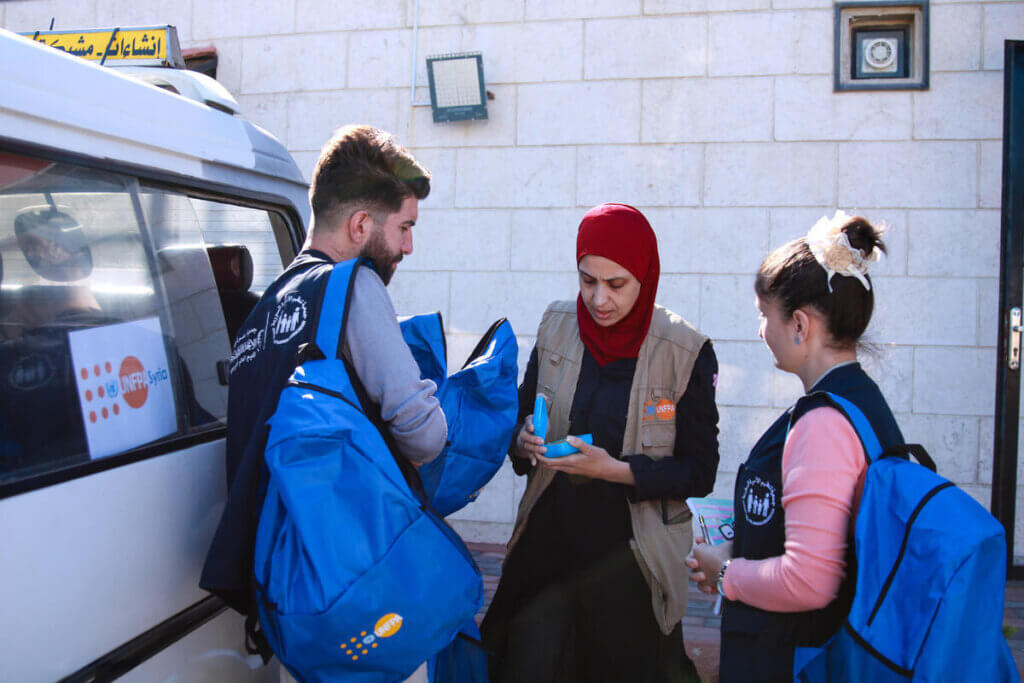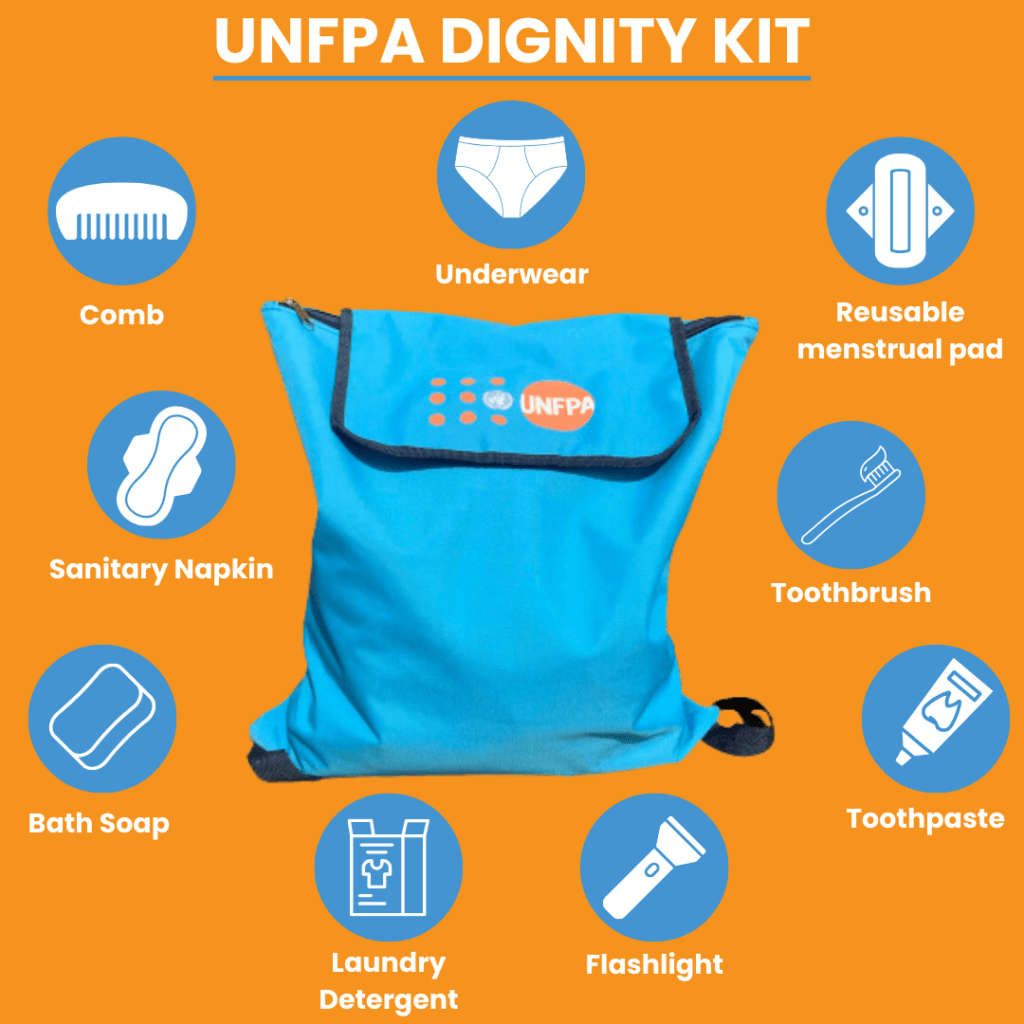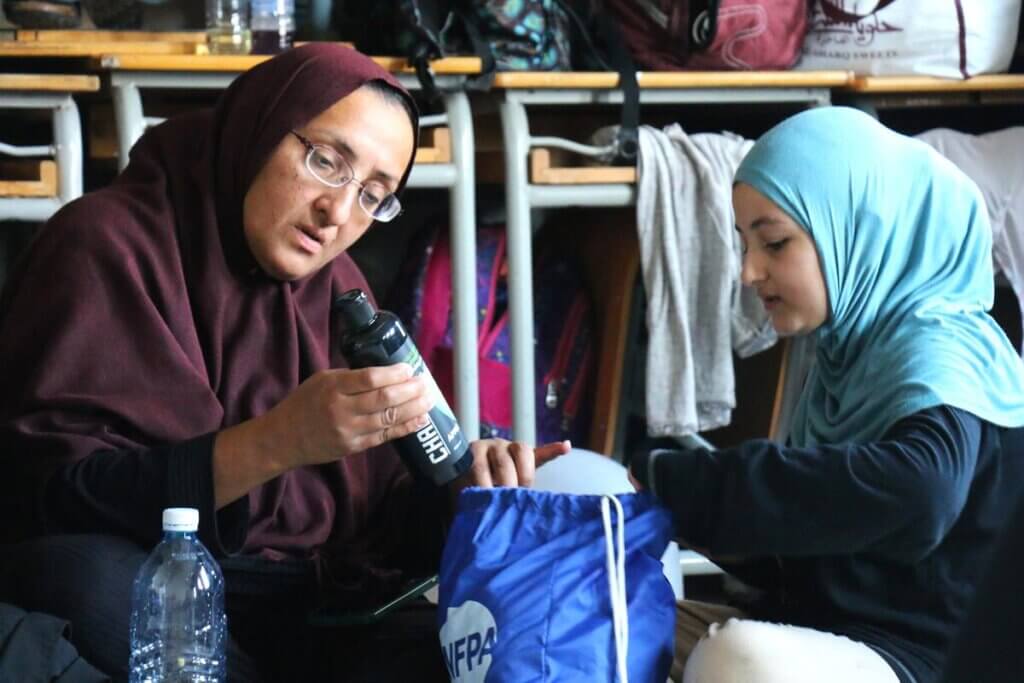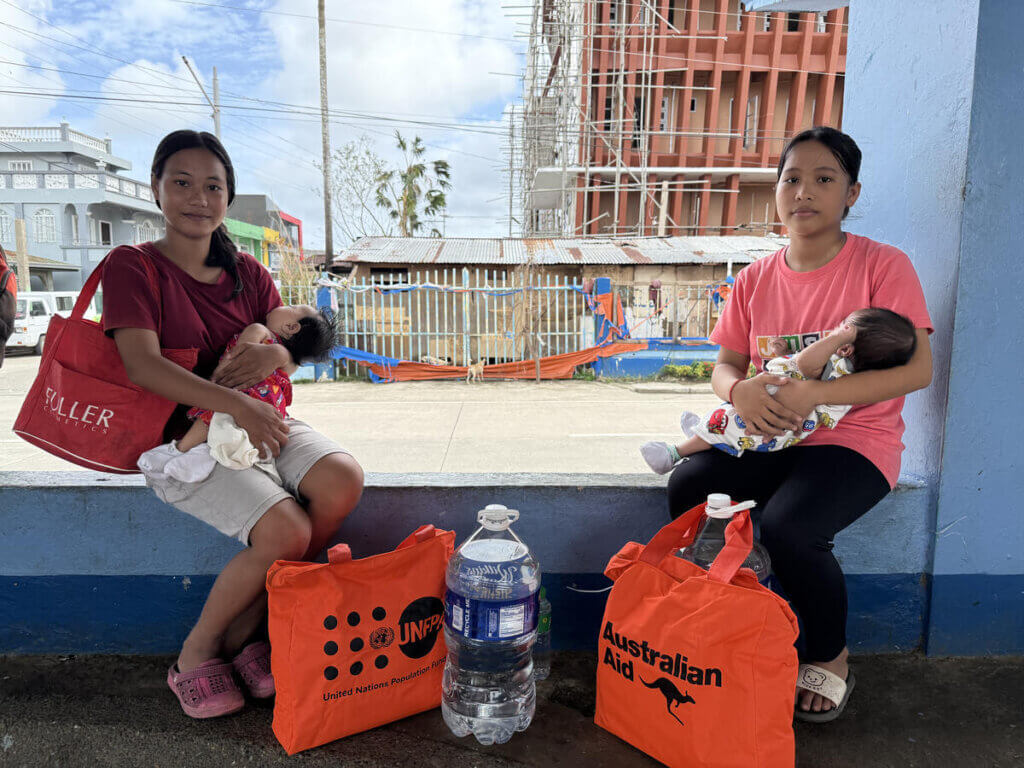
In the face of humanitarian crises and displacement, women and girls don’t stop getting their periods – but they do lose access to critical menstrual care products and clean facilities to manage their cycles with dignity. This in turn makes them more likely to contract illnesses at a time when their immune systems are already at a low.
That’s part of the reason behind why distributing Dignity Kits is a significant portion of our humanitarian response each year. In 2023, we distributed hundreds of thousands of Dignity Kits to women and girls in humanitarian crises such as Gaza, Sudan, and Yemen.
“May God bless you, because this is the first time I have received a such package since the day we were displaced,” one Dignity Kit recipient in Gaza shared with us.

What is in a UNFPA Dignity Kit ?
There are many versions of Dignity Kits that we distribute, but a basic kit contains items that help the recipient manage their period and personal hygiene with dignity. This often includes menstrual pads (both disposable and reusable), bath soap, laundry detergent, toothpaste and a toothbrush, underwear, a comb, and a flashlight.
This kit replaces many of the essentials that a person may not have had time to grab when being displaced, all packed away in a backpack that can be grabbed in the event of another displacement.
Our Dignity Kits are also altered depending on the unique needs that people are facing at the moment. For example, during the bitter winter months, we winterize our Dignity Kits and include a blanket and a waterproof tarp to go over temporary shelters. In emergencies that disproportionately impact LGBTQ+ people, we distribute Pride Kits, which include information on violence support in addition to reproductive health and hygiene products. In some places, we also include information about psychological support services alongside the items of the Dignity Kit.
We also distribute Menstrual Hygiene Management Kits (MHM) to women and girls who are displaced, which includes additional menstrual products such as menstrual cups and tampons.
“All the items in the bag are not available in the first place, and even if they are, their prices are very expensive,” another Dignity Kit recipient in Gaza shared with us.

The Power of Dignity Kits
Distributing Dignity Kits does more than providing essential supplies – it also gives women and girls a glimmer of hope. Bakiza, a mother in Gaza who was displaced with her sixteen-year-old daughter after she lost her husband in an attack, shared this with us:
“I would cut a piece of cloth to use as a sanitary pad for our periods. What else could I do?…So I ended up tearing pieces of fabric to manage, and my daughter told me, ‘Mom, I can’t do this!’ But what could I do?”
Bakiza and her daughter both received UNFPA Dignity Kits, allowing them the chance to manage their periods without any more shame.
Thanks to our supporters, we have sent hundreds of thousands of Dignity Kits to Gaza since the war began over a year ago. In November alone, we sent 12,415 kits to people like Bakiza and her daughter – providing them with what they need to safely manage their periods while being displaced multiple times over. In Lebanon, we distributed 6,578 Dignity Kits last month, in Syria we distributed 12,440 Dignity Kits last month, and in Sudan we distributed 64,000 Dignity Kits so far in 2024.
“I am 14 years old, and this is the first time anyone has remembered me for anything, especially as a girl,” another recipient in Rafah shared with us.

Thank you for being there for her in 2024
Thank you for helping us provide hundreds of thousands of Dignity Kits to women and girls every year. In 2024, we have made a true, measurable impact for people around the world, and we couldn’t have done any of this without your unyielding support.
As we look ahead to 2025, we’re eager to see what else we can accomplish for women and girls – but we’re also bracing ourselves. When President Trump took office in 2017, he defunded UNFPA’s lifesaving work within just 74 days, and we’re preparing for the very real possibility that his Administration will choose to do the same again.
If we are defunded by the U.S. government, crucial programs around the world will suffer – but with the help of this powerful community, we can ensure that we will still be there for women and girls.
But as we prepare for this future, we must ask: Can we count on you to make a donation to fund UNFPA’s essential sexual and reproductive health services before the end of the year? A Dignity Kit costs just $15 to create – and if you make a donation before 2204 ends, your gift will be MATCHED dollar for dollar, up to $2000.
Thank you for being there for every woman and girl!